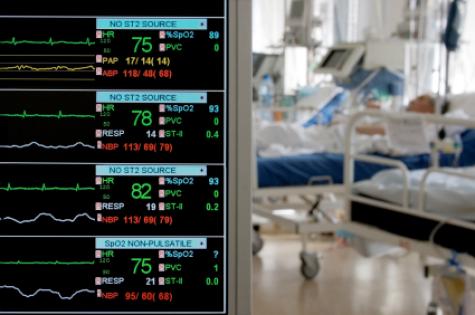“This is my friend Gerry, he’s a doctor, a specialist of some sort, what kind of doctor are you again Gerry?”
I can’t tell you how many times this has happened and I would like to say I have done a good job of explaining to folks what I do but I am really not sure I have so this is my chance to set the record straight.
“I’m an intensive care specialist” I say. “Oh yeah, I knew it was something to do with emergencies”.
It’s not. Intensive care specialists are part of a team of people who treat patients in hospitals who require various forms of technological life support to replace, usually temporarily, particular essential functions to stay alive.
This might include some or all of breathing, regulating your pulse and blood pressure, getting oxygen into and carbon dioxide out of your blood, removing toxins from your body which your kidneys and liver would normally do, as well as the very fundamental activities of eating and drinking.
For example, if you fell and banged your head you might lose consciousness and stop breathing due to brain swelling and increased pressure inside your skull. This would require a range of treatments including reducing your body temperature with machines, slowing your metabolism with drugs, artificial breathing to achieve a specific biochemical profile as well as surgical interventions by the neurosurgical team.
Intensive care specialists have a leadership role in diagnosis using the vast array of radiology and blood tests available, deciding and implementing the appropriate level of physiological monitoring to understand the evolving disease, choosing and prescribing treatments such as drugs, patterns of mechanical ventilation and communicating with patients, their families and friends and the entire team of health professionals.
Other aspects of caring for our patients are led by nursing and allied health colleagues. Many patients are deeply unconscious or paralysed and need to be repositioned regularly, washed, dressed, fed, moved, turned, have injections, dressings, blood tests and other procedures.
This level of vulnerability requires very special carers with great focus, high levels of vigilance, skill and attention to detail. Families and friends need constant reassurance and information which is provided by nurses, social workers and volunteers.
This brings me to the next essential part of being an intensive care specialist and that is collaborating with colleagues to coordinate a vast range of highly specialised interventions which are well beyond the scope of any individual.
The core intensive care team involves highly skilled nurses, physiotherapists, pharmacists, nutritionists, speech pathologists, social workers, occupational therapists, administrators and cleaners who defend our patients from the dangerous bacteria which proliferate in the hospital environment. The other colleagues who contribute to the care of an individual patient depends on the nature of the illness and the treatments required but can be long and varied. One of the great benefits of my job is the constant opportunity to learn from other specialists and health professionals as we work together to develop treatment plans for our shared patients and their loved ones.
It takes quite a while to train in intensive care medicine. After medical school there is a post-graduate program and fellowship examination which takes about 5 years following two general years. Most intensive care specialists have already achieved other specialist qualifications in internal medicine or anaesthesia by the time they start, which means we can be up to ten years out of medical school.
Many intensive care specialists have also additional qualifications in research, ethics or particular skills such as cardiac ultrasound. I am amazed by the industry of my colleagues. There are a lot of ‘type A’ high achievers in a small space! I read that this is sometimes an issue in some industries but it is not such a big issue in the healthcare sector where we are trained to be collaborative and consultative in our quest for the best possible outcome for our patients.
People in intensive care units wake up from comas, survive life threatening infections and car crashes, recover from open heart surgery and liver transplants, confront their demons after failed overdoses, regain control over their diabetes, have cancers removed and even occasionally go straight home after a sudden allergic reaction or asthma attack.
Some slip quickly back in to their normal lives and families; most begin a polar expedition of rehabilitation and reintegration. Most people get better if not well. But some say their last goodbyes, or at least it is said to them. Sometimes that is crushingly sad and sometimes that’s ok.
It is a constant source of inspiration and satisfaction to work with the people I do on a daily basis, and to be in a position to help people who are very ill to recover or to be as comfortable as possible.


















__small.png)










